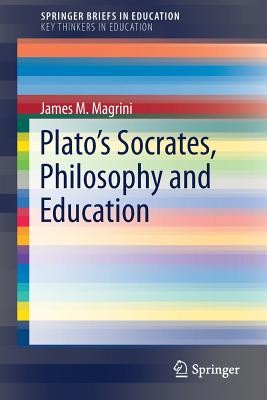
- We will send in 10–14 business days.
- Author: James M Magrini
- Publisher: Springer
- ISBN-10: 3319713558
- ISBN-13: 9783319713557
- Format: 15.6 x 23.4 x 0.8 cm, softcover
- Language: English
- SAVE -10% with code: EXTRA
Reviews
Description
This book develops for the readers Plato's Socrates' non-formalized "philosophical practice" of learning-through-questioning in the company of others. In doing so, the writer confronts Plato's Socrates, in the words of John Dewey, as the "dramatic, restless, cooperatively inquiring philosopher of the dialogues, whose view of education and learning is unique: (1) It is focused on actively pursuing a form of philosophical understanding irreducible to truth of a propositional nature, which defies "transfer" from practitioner to pupil; (2) It embraces the perennial "on-the-wayness" of education and learning in that to interrogate the virtues, or the "good life," through the practice of the dialectic, is to continually renew the quest for a deeper understanding of things by returning to, reevaluating and modifying the questions originally posed regarding the "good life." Indeed Socratic philosophy is a life of questioning those aspects of existence that are most question-worthy; and (3) It accepts that learning is a process guided and structured by dialectic inquiry, and is already immanent within and possible only because of the unfolding of the process itself, i.e., learning is not a goal that somehow stands outside the dialectic as its end product, which indicates erroneously that the method or practice is disposable. For learning occurs only through continued, sustained communal dialogue.
EXTRA 10 % discount with code: EXTRA
The promotion ends in 18d.08:34:14
The discount code is valid when purchasing from 10 €. Discounts do not stack.
- Author: James M Magrini
- Publisher: Springer
- ISBN-10: 3319713558
- ISBN-13: 9783319713557
- Format: 15.6 x 23.4 x 0.8 cm, softcover
- Language: English English
This book develops for the readers Plato's Socrates' non-formalized "philosophical practice" of learning-through-questioning in the company of others. In doing so, the writer confronts Plato's Socrates, in the words of John Dewey, as the "dramatic, restless, cooperatively inquiring philosopher of the dialogues, whose view of education and learning is unique: (1) It is focused on actively pursuing a form of philosophical understanding irreducible to truth of a propositional nature, which defies "transfer" from practitioner to pupil; (2) It embraces the perennial "on-the-wayness" of education and learning in that to interrogate the virtues, or the "good life," through the practice of the dialectic, is to continually renew the quest for a deeper understanding of things by returning to, reevaluating and modifying the questions originally posed regarding the "good life." Indeed Socratic philosophy is a life of questioning those aspects of existence that are most question-worthy; and (3) It accepts that learning is a process guided and structured by dialectic inquiry, and is already immanent within and possible only because of the unfolding of the process itself, i.e., learning is not a goal that somehow stands outside the dialectic as its end product, which indicates erroneously that the method or practice is disposable. For learning occurs only through continued, sustained communal dialogue.


Reviews